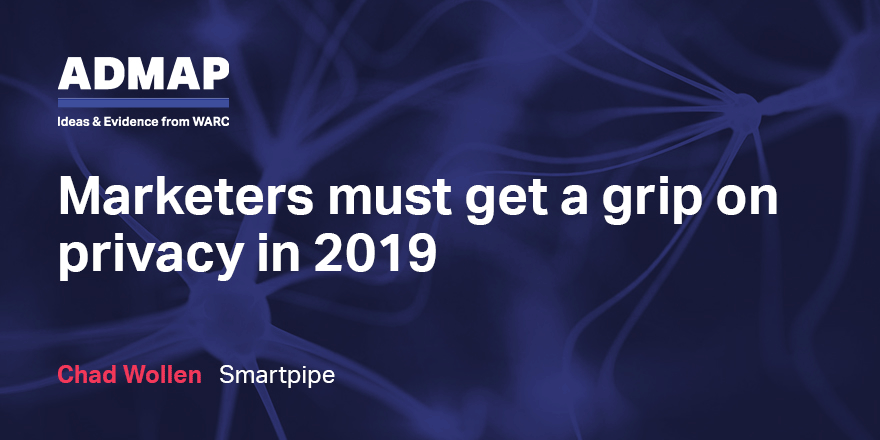Research into the secret financial lives of Americans reveals some important lessons for the wider marketing community, according to Gunny Scarfo and Ben Zeidler of Nonfiction Research.
The two are hosting a WARC webinar on the subject later this week. Here, they outline some of their findings.
There’s a lot of chatter on professional networks these days about how strategy demands big thinking. That’s fair. But we tend to think that the greatest source of “big thinking” for brands is something entirely unprofessional: an embrace of the customer’s darkest, most personal moments. Experiences that feel too uncensored for discussion in a conference room. The real life you can’t see - rather than the public life accessed by most market research.
We recently set out to understand the secret financial lives of Americans. We gave over 2,000 Americans a private platform to reveal their true, hidden realities when it comes to money. They told us about crying alone, about covering ATM screens, about going to sleep hungry, about having sex for money, and about Instagram images making them uncertain of what a “normal” lifestyle is. They told us dark secrets about their lowest moments and darker secrets about their highest moments. They told us things that they had never told anyone else. They told us where they wanted help.
From that uncensored candor, a fundamental truth emerged: of the eight things Americans most want help with financially, none are available today from mainstream financial companies.
Figure 1: Eight unmet customer needs from financial companies
- Evaluating if they’re being paid fairly
- Maximising their salary at their current job
- Planning career moves to grow household income
- Budgeting month to month
- Right-sizing their debt
- Planning affordable vacations
- Dealing with the spending pressures of status anxiety
- Having a holistic advisor to talk about their entire financial life
The first lesson
The first lesson from the study is specific to the financial services industry: you are missing out on profit because you’re thinking like a company rather than a customer.
Let’s look at the first unmet need as an example. Our study found that most Americans, when candid, suspect they’re not being paid fairly. Among women, 70% believe they’re not being paid fairly. This issue, for many women, is the absolute epicenter of their financial lives. Why don’t mainstream banks offer compensation consulting? Why don’t they offer salary negotiation training? Why don’t they offer advice on how to plan a career? Imagine a TV ad for a bank that said, “We understand the things modern women wrestle with, which is why we’ve decided to offer salary evaluation and negotiation advice for any customer of our bank.” Executed properly, that campaign could result in a landslide of new customers - and the ability to market other useful services to existing customers.
Financial companies should look seriously at the following steps to reset their understanding of the customer:
- Beyond “Digital Transformation” is human understanding. Understanding their needs goes beyond “digital transformation” into the squishy, human parts of their lives like “embarrassing moments” and “hope for the future.” Our study suggests that your existing research likely only scratches the surface.
- The future of finance is holistic guidance. If you’re reading this, you’re likely a financial specialist, not a holistic advisor. You likely feel you’re not responsible for the future of your customer’s personal balance sheet. But holistic guidance is a major unmet need for Americans, and companies are already figuring out how to offer it to the non-wealthy. When that happens, they will own your customer. You must decide: do you want to partner up with other firms and own the customer through holistic guidance, or do you want to be a commodity that the holistic advisor evaluates? There can be success in either direction, but anyone caught in the middle will likely get vaporized.
- Consider helping people make sense of status anxiety. This sounds silly if you’re a loan officer or an accountant, but it shouldn’t. Our study reveals that Americans are privately obsessing over what is the right amount to spend on their lifestyle -- and that touches your business somehow. Even if it’s just email content, the topic of status anxiety will strike a nerve.
The second lesson
The second lesson transcends the financial industry and applies to all brands and all strategists: your buttoned-up, polished, professional thinking is your greatest enemy in understanding your customer. If the financial industry, with its hundreds of years and trillions of dollars, has become too distant from the real, uncensored lives of its customers, it’s likely that yours has too.
As brands, part of our job is to study our customers in a deep, empathic way -- not just their purchase histories and digital behaviors, but their darkest moments, their hope, and their humanity.

Join the free WARC webinar on December 6th to learn more about how banks and non-banks can thrive in a customer-centric financial industry. Or read the full report.

